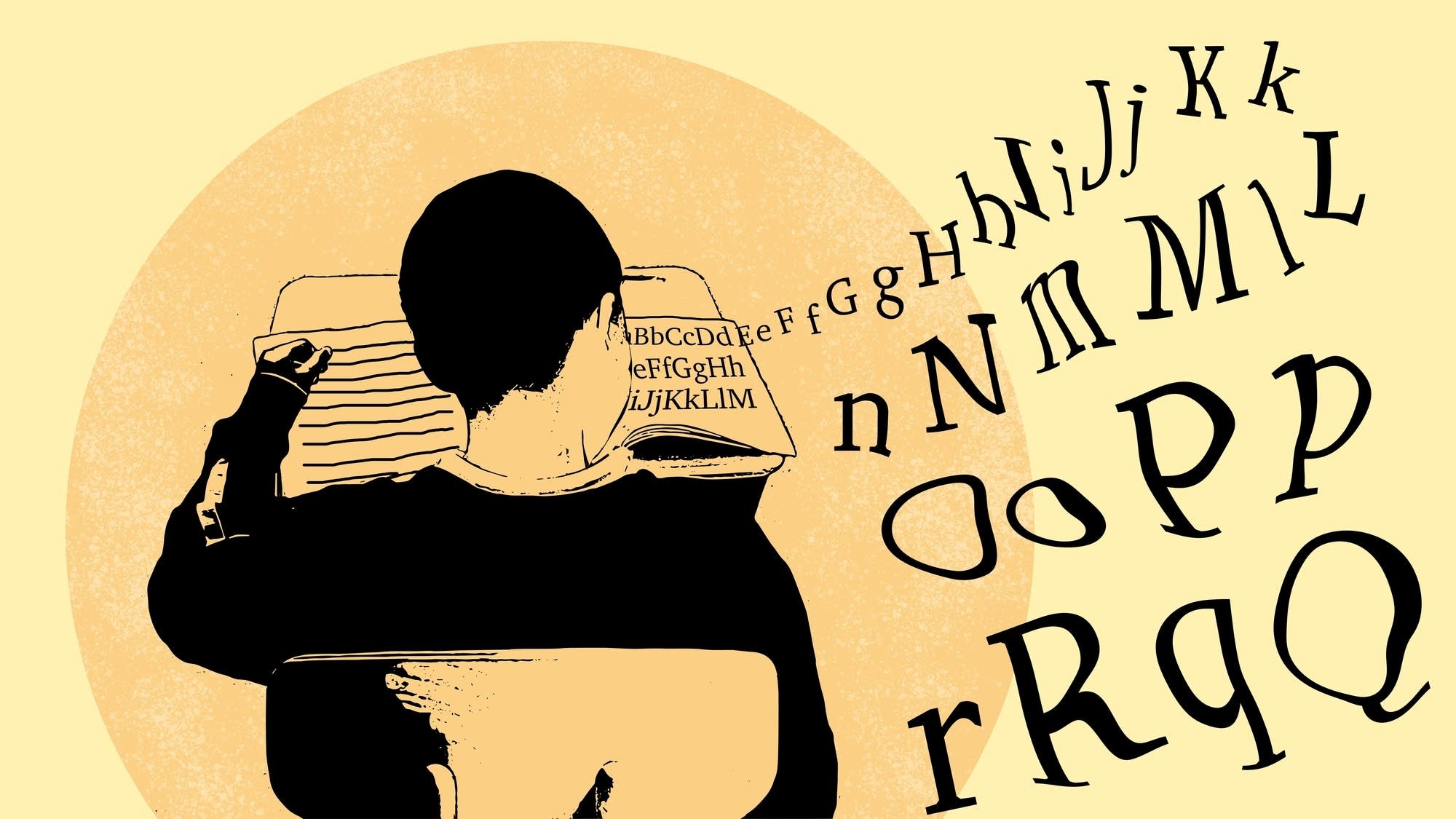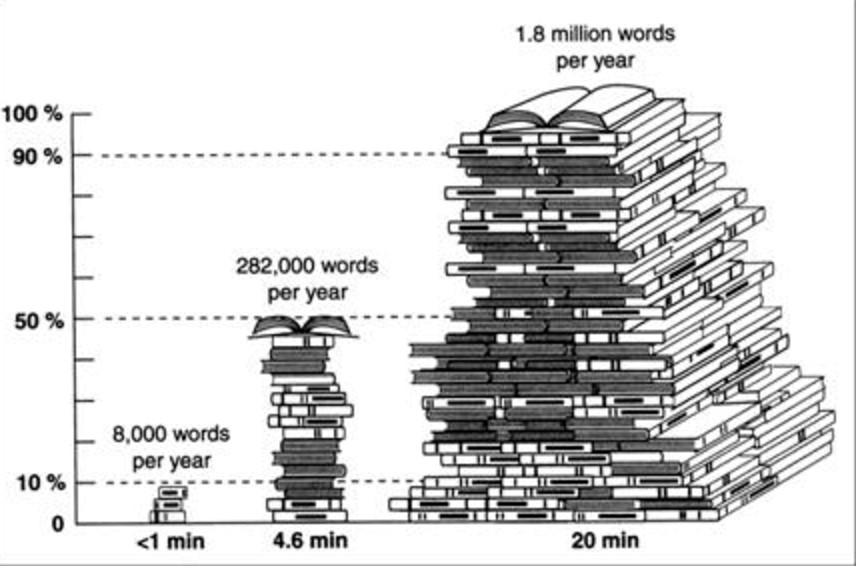
Hard Words: Why Aren’t Our Kids Being Taught to Read? is an amazing podcast (and text) by Emily Hanford at APMreports (https://www.apmreports.org/


Hard Words: Why Aren’t Our Kids Being Taught to Read? is an amazing podcast (and text) by Emily Hanford at APMreports (https://www.apmreports.org/
With just a little over a month left of school, it’s time remember the impact that daily reading can make for students. Shaywitz’s (2003) graph below says so much

For those who find reading a challenge, summer is the time when just a little bit of intentional, focused oral practice every day can help a student get them back on track and regain their confidence.
For those that find reading and writing especially difficult, it’s a great time for multi-sensory scientifically based instruction, sometimes referred to as Orton-Gillingham or Structured Language approach, with a tutor trained in these methods to solidify skills. It’s time to work on skills that are lagging behind their peers, without the fatigue created by spending the day in the classroom. Students have a marvelous opportunity to make strong gains.
Whether you’ve planned some “academics” for your children or not, below are some ideas for summer activities. In addition, you could consider rewarding your child with an end of the week treat if they read at least a certain amount of time minutes for at least five days in the previous week (an old fashioned chore chart works well for this). 20 minutes a day 5 days a week is less than 2% of summer vacation. How much time do they spend practicing sports, playing computer games, or other things. Make reading a priority this summer.
Below are some ideas to encourage and enjoy reading. Need some ideas for “treats/rewards”? Try a DQ, a new book, a special dessert, and — a favorite at our house – having a picnic dinner.
Reference
Shaywitz, S. (2003). Overcoming Dyslexia: A new and complete science-based program for reading problems at any level. New York, NY: Vintage Books.
Great opportunity for kids to read, so if we get the rain that’s predicted here is a great indoor activity. Something fun for your Saturday.
Duluth Library Foundation
Studies show that children feel more comfortable reading out loud to dogs than to people. Your child can read to a therapy dog this Saturday at Miller Hill Mall between 11 am and 1 pm!

Orton-Gillingham methods build strong, confident readers. If your child is struggling in school, consider working with an Orton-Gillingham tutor over the summer to help them build reading confidence and a lifetime love of learning. Don’t let them struggle for years. Signs that a child will struggle with reading are evident in kindergarten.
The sequential part of Orton-Gillingham teaches reading skills in a direct, systematic, orderly way and including: phonemic awareness, letter recognition, concepts of print, sound/symbol relationship, word reading and spelling, syllables, fluency skills, vocabulary, and comprehension. When a child struggles with fluency, usually one of the more fundamental building blocks, listed above, is weak. Fluency involves the pace and accuracy of reading and prosody. Prosody is the expression, volume, phrasing and smoothness.
Minnesota has adopted Read Well by 3rd Grade, but most of us don’t know what that means. We read to comprehend information, but before we do that reading fluency is key and before that, other building blocks. Today, in many of our schools children’s fluency is measured by giving them the same three grade level passages multiple times over the year and having a child read each for one minute. A recorder marks the errors a student makes and indicates the number of words the child read. Sometimes comprehensions is tested by having the student retell the story…. but that is a different conversation. Most research expect that a third grade child should begin the year reading grade level material at a rate of 70 or more words per minute and end the year reading 100 or more words per minute they are considered meeting their benchmark with 95% – 97% accuracy, respectively. The numbers for the rate of reading represent the 50th percentile. If a students falls below the midpoint they should be receiving additional intentional support in the area that they have demonstrated a weakness in that comes before fluency on the continuum of learning to read. If your child is not meeting the midpoint by the end of third grade, fourth grade will be significantly more challenging than previous years. I could argue that for some students meeting the middle is even too lower of a threshold.
I’m happy to talk with any family about reading, if I can’t help you, I can often direct you to someone that can. Please feel free to call me at 218-340-7393.
Tutoring Duluth is joining a new group of area tutors. This new cohort is a group of like-minded tutors meeting the needs of students on an individual bases. Most important, for us as tutors, this will help us help our students, but we will also be able to support each other and grow as tutors. In addition to the reading and writing support I offer, one of the cohort tutor’s does high school and college level support for students in math and science and another is a professional writer. These tutors will be able to support students in preparation for the ACT/SAT as well as day-to-day academia. We are scattered around the Duluth-Superior area and the Arrowhead region making it easier for families to find conveniently located services. Look for the new website….
TwinPortsTutoring.org …..coming soon.
I’m so excited to be part of this group.